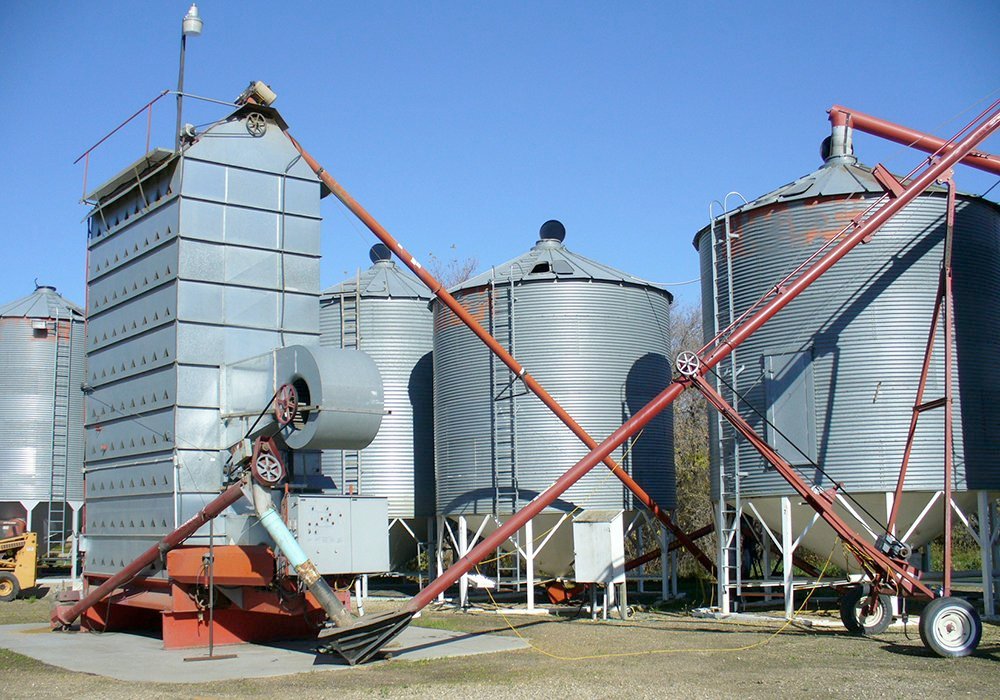Ottawa ties grain dryer funding to emissions reduction

Agriculture minister says the object is to get the best bang for the buck so government investment has real impact
Farmers who hope to get money from Ottawa’s $50 million program for more efficient grain dryers will have to demonstrate that they will cut greenhouse gas emissions.
The money was announced in the most recent federal budget as part of the $165.7-million Agricultural Clean Technology Program. Agriculture minister Marie-Claude Bibeau provided more details at an announcement in Quebec last week.
“The idea is to replace fuel and at the end of the day the most important criteria is, will it make a difference in terms of reducing emissions,” she told a June 4 news conference. “The way our specialists will analyze the projects is to see does it make a difference in terms of reducing the emissions and the idea is that we want to spend this money the most efficiently as possible.”
Bibeau said the object is to get the best bang for the buck so the government’s investment has a real impact.
Under the program, farmers can retrofit dryers or buy more efficient ones. For example, a farmer could upgrade an old propane dryer, similar to a program in Alberta, or buy a carbon-neutral dryer that uses biomass as the fuel source.
“Many producers do not have the best technology that is available and this is why we want to stimulate the demand and encourage also the industry to develop and to invest in the development of better technology, more energy efficient technology,” said Bibeau.
She said she is confident that western Canadian farmers will participate.
“This is real money to provide direct support to farmers who are ready to maybe change their equipment or adopt more energy efficient technologies,” she said.
There are three priorities within the clean technology fund: green energy and energy efficiency, precision agriculture, and the bioeconomy.
There are also two funding streams: one to encourage adoption and one for research and innovation.
Through the adoption stream, the projects must cost at least $50,000. Eligible applicants can receive funding of up to 50 percent for for-profit recipients, such as farms, and up to 75 percent for not-for-profit projects.
The funds are available over five years and includes the $50 million for grain dryers and $10 million for powering farms with clean energy and moving away from diesel.
The research and innovation stream will fund pre-market innovation of agricultural clean technologies. There are both non-repayable and repayable grants of up to $2 million available for projects that are typically cost-shared 50-50. This funding is available for seven years, until 2028.
Bibeau said climate change is one of agriculture’s greatest challenges and farmers are leading the way already.
“Over the past two decades Canadian farmers have managed to double their production while stabilizing greenhouse gas emissions,” she said. “But being green is not always easy. It takes time, resources, commitment and ingenuity to find solutions that work for the farm while striving to balance costs and profits at the farmgate.”
Bibeau said adopting the correct practices is an investment.
“Amazingly, it is estimated that the new program has the potential to reduce up to one megaton of greenhouse gases from the Earth’s atmosphere,” she said.
Meanwhile, Bibeau said the government is still working on the $100 million carbon tax rebate promised in the budget.
“We will announce it as soon as we have come with what we think is the best way to give it back to farmers,” she said.
More information about the clean technology programs is available on the Agriculture Canada website. Applications will be available later this month.
Source: producer.com

